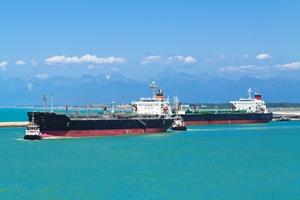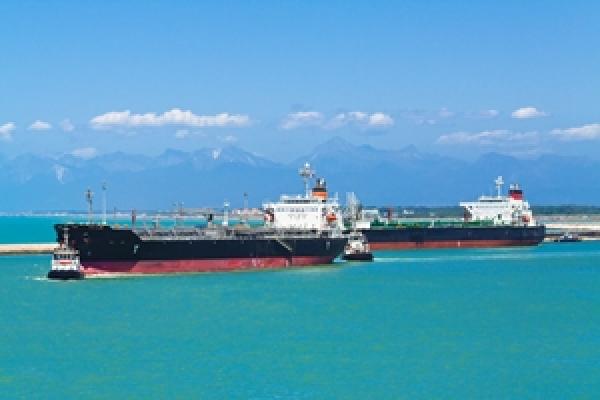
Steamship Mutual
Published: March 01, 2011

Dolphin Tankers Srl v Westport Petroleum Inc [2010] EWHC 2617 (Comm)
This case was heard on appeal by the Commercial Court following an arbitration award in which charterers’ termination of a time charter on the ground that owners had failed to maintain oil major approvals was upheld by the Tribunal.
Charterers terminated a five year time charterparty on an amended Shelltime 4 Form pursuant to clause 50 of the charter party. The relevant sections of clause 50 read:
“50. Vessel's approval clause (Amended)
1.1 Upon delivery from shipyard: owners shall use best endeavours to obtain pre-approvals, which shall include, but not be limited to, inspection of the vessel in the shipyard or at first bunkering operation if/when possible. If pre-approvals are not obtained when the vessel is in the building yard or at the first bunkering, owners will use best endeavours to obtain the minimum 3 (three) major oil company approvals as soon as possible, however, said approvals must be in place not later than 60 (sixty) days from date of delivery (subject to vessel's trading areas and availability of inspectors).
1.2 (1) If owners fail to secure the 3 (three) minimum approvals after 60 (sixty) days of delivery from the shipyard, charterers have the option to extend the 60 (sixty) day period or to place the vessel off-hire from the date and time that she fails to hold the minimum 3 (three) approvals.
1.3 If owners subsequently fail to secure the 3 (three) minimum approvals after an additional period of 60 days, charterers may, without prejudice to any other terms of this charter, terminate the charter party by serving notice of early redelivery to owners.
2.1 During the currency of this charter party: owners will (if so requested by the charterers) co-operate in having the vessel inspected by oil companies if any current SIRE report has to be renewed.
2.2 Owners will use best endeavours to have the vessel inspected and approved by a minimum of 3 of BP, Shell, Exxonmobil, Chevtex and Total Fin Elf within 60 days of the delivery of the vessel into this charter……..
3.1 A failed vetting inspection under the SIRE system by the charterers or any other company shall not of itself constitute a reason for the charterers to put the vessel off-hire or enable the charterers to assert a claim under this charter.
3.2 However should the vessel be failed on three (3) consecutive oil major vetting reviews/inspections due to owners'/vessel's reason, the charterers shall have the option to put the vessel immediately off-hire until the vessel next passes a vetting inspection, such failure shall amount to a breach of this charter and charterers shall have the option to cancel the charter without recourse to either party, giving 30 days notice of such cancellation.
3.3 A vetting review/inspection is defined as a nomination by the charterers to an oil major and the oil major reviewing the vessel by either a physical inspection or latest SIRE inspection report. A failure would consist of the oil major rejecting the vessel during this process.”
The vessel traded for 18 months without problems. However, in December 2009 the vessel was rejected by ChevTex. Subsequently, the vessel undertook a SIRE inspection carried out by BP at owners' request. The vessel passed that inspection. The vessel then suffered three further rejections (by Total and ConocoPhillips and by ChevTex again). The Tribunal held that there had been four consecutive Qualifying Rejections and under clause 50.3.2 charterers were entitled to terminate the charterparty. The Tribunal had decided that the BP “pass” was not relevant as it was carried out at owners’ instigation.
On appeal, the Court considered three questions:
1. What was the definition of an “oil major”;
2. Did the clause allow owners to initiate the vetting process; and
3. The significance of SIRE reports.
Oil Major
Owners submitted that “oil major” had a meaning in the charterparty, being the companies named in 50.2.2 and thus excluding ConocoPhillips. It was said that a general interpretation was not relevant as the charterparty had its own definition and for the purposes of clause 50, “oil majors” were only the 5 companies expressly named.
The Court rejected owners' argument and upheld the arbitrator's finding that the natural and ordinary meaning of the unqualified words “oil major” in 50. 3.2 included all six recognised oil major companies (this had been agreed between the experts). This was supported by 50.3.3., which said that “a vetting review/inspection is defined as a nomination by the charterers to an oil major” (emphasis added).
The BP “Pass”
The court accepted charterers’ submission that 50.3.3 was clear and required a vetting review/inspection to be a nomination by charterers. The BP nomination was made by owners and therefore could not be counted so as to count to break a run of Qualifying Rejections.
SIRE Inspection
Owners contended that 50.3.3 meant that a vetting failure could only give rise to a Qualifying Rejection where the latest SIRE Report was the (or an) effective cause of that failure and that in none of the Qualifying Rejections found by the arbitrator could it be shown that the BP SIRE Report was either the or an effective cause of the failure.
The Court did not agree. On the expert evidence, the Tribunal had found that oil majors will look at the history of SIRE inspection reports as part of the vetting process and had concluded that the oil majors who had issued the Rejections in this case had “probably” reviewed or referred to the latest SIRE report. The judge detected no error of law on the part of the arbitrator. The appeal was dismissed in full.
Transpetrol Maritime Services Limited v SJB (Marine Energy) BV [2010] EWHC 3374 (Comm)
In June 2007, SJB voyage chartered the vessel “Rowan” for a cargo of vacuum gas oil (“VGO”) from Odessa via Antwerp to US Gulf. Following an inspection at Antwerp, the vessel lost any Oil Majors Approvals it had and SJB had to sell the cargo at a considerable discount. SJB claimed damages of US$3, 247,000.
The court considered several issues but the one of interest to us is the extent and effect of the warranty as to Oil Major Approvals given by owners.
Oil Majors operate a system of vetting and approvals to ensure that the vessels they use or trade or buy cargos from are of satisfactory quality. The companies pool their inspection reports made for the purposes of approvals through a database know as SIRE. The inspections cover the same or similar matters for all companies. A report is sent to owners who may respond with comments. When owners provide comments these are incorporated in the SIRE report which is then available for all SIRE members to read. Vetting involves more than simply looking at the SIRE report but that report is a major factor in any decision. Owners and operators of tankers seek written approvals from Oil Majors, preferably from the top names, as such approvals greatly help marketing.
The charterparty contained the following clause:
“Owner warrants that the vessel is approved by the following companies and will remain so throughout the duration of the charterparty:
Tbook vessel approved by BP/Exxon/Lukoil/Statoil/MOH”
It is not the practice of Oil Majors to grant approvals in advance. Letters from the companies relied upon as approvals will generally state that no such approval has been granted and should not be assumed. This is the result of reluctance by Oil Majors to commit themselves about a vessel in advance following problems caused by pollution incidents. Both experts in this case agreed that the approval letters relied on by owners were usual for the Oil Majors concerned, that some in the industry regarded them as approval letters while some would characterise them instead as indicating that vessels were “acceptable to” or “not unacceptable to” the Oil Majors. They also agreed that express approvals were given only for specific voyages, not for a period of time.
Mackie J considered that:
“..“approved” for the purpose of the clause means that the approval letters specified must be in place throughout the charter. At any time when offered to cargo buyers the vessel must not be in a state which to the knowledge of Owners would remove the comfort of the warranted approvals to the potential purchaser of cargo. For example there will be a breach of warranty if some event occurs which, to the knowledge of Owners, would if known to the issuer of the approval letter, cause it to withdraw or cancel that approval.”
The facts of the matter are relatively straightforward: Whilst at Antwerp, both Shell and Conoco conducted SIRE inspections. Shell noted 33 adverse comments and Conoco more than 20. Owners’ expert had to concede that BP would never have “approved” her thereafter.
The judge found that Shell, who had previously agreed in principle to buy the cargo, subject to vetting, had declined to proceed because of the adverse SIRE report. He also held:
“It is self-evident from the SIRE inspections at Antwerp that no oil major would on the basis of what then was known have written a letter in terms recognisable as an approval letter in this case.”
The Judge held that owners broke the warranty that to the best of their knowledge and belief the vessel was approved by the specified companies and would remain so throughout the duration of the charterparty. It was inconceivable that if asked whether the approval letters still applied in the light of what had happened at Antwerp, the extent and implications of which were known to owners, that any of the specified companies would have continued to regard the vessel as “approved”.
Conclusion
Oil Major Approvals in the tanker trade are of extremely significant import as it is virtually impossible to trade a tanker profitably without them. These decisions will bolster English case law on the subject.
Article by Sian Morris


